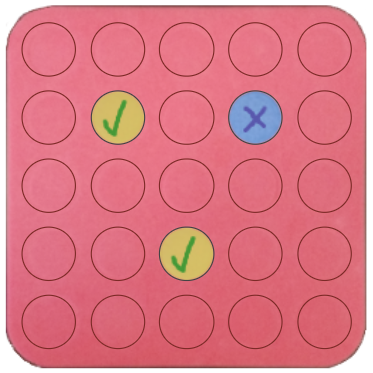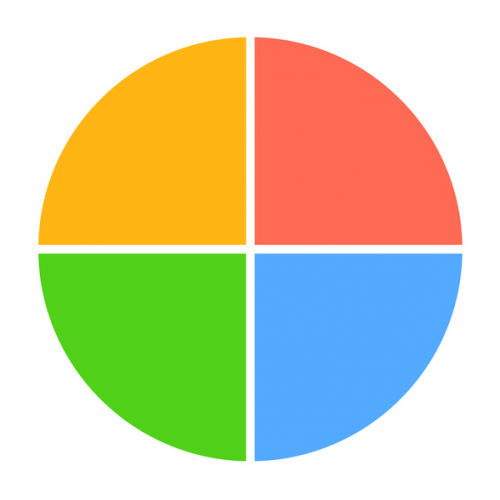Building With Solid Shapes
We have a box of cubes, triangular prisms, cones, cuboids, cylinders and tetrahedrons. Which of the buildings would fall down if we tried to make them?
Board Block
Take it in turns to make a triangle on the pegboard. Can you block your opponent?
Chairs and Tables
Make a chair and table out of interlocking cubes, making sure that the chair fits under the table!
Matching Triangles
Can you sort these triangles into three different families and explain how you did it?
Inside Triangles
How many different triangles can you draw which each have one dot in the middle?
Repeating Patterns
Try continuing these patterns made from triangles. Can you create your own repeating pattern?
Exploded Squares
Can you create symmetrical designs by cutting a square into strips?
Shapely Lines
This challenge invites you to create your own picture using just straight lines. Can you identify shapes with the same number of sides and decorate them in the same way?
Triple Cubes
This challenge involves eight three-cube models made from interlocking cubes. Investigate different ways of putting the models together then compare your constructions.
Sorting Logic Blocks
This activity focuses on similarities and differences between shapes.
Rolling That Cube
My dice has inky marks on each face. Can you find the route it has taken? What does each face look like?
Shaping It

Poly Plug Rectangles
The computer has made a rectangle and will tell you the number of spots it uses in total. Can you find out where the rectangle is?
Data Shapes
Sara and Will were sorting some pictures of shapes on cards. "I'll collect the circles," said Sara. "I'll take the red ones," answered Will. Can you see any cards they would both want?
What's Happening?
Shapes are added to other shapes. Can you see what is happening? What is the rule?
Opening Patterns
Look at some of the patterns in the Olympic Opening ceremonies and see what shapes you can spot.
Let's Investigate Triangles
Vincent and Tara are making triangles with the class construction set. They have a pile of strips of different lengths. How many different triangles can they make?

A City of Towers
In this town, houses are built with one room for each person. There are some families of seven people living in the town. In how many different ways can they build their houses?
Chain of Changes
In this activity, shapes can be arranged by changing either the colour or the shape each time. Can you find a way to do it?

Four Colours
Kate has eight multilink cubes. She has two red ones, two yellow, two green and two blue. She wants to fit them together to make a cube so that each colour shows on each face just once.
Skeleton Shapes
How many balls of modelling clay and how many straws does it take to make these skeleton shapes?
Making Shapes
Arrange any number of counters from these 18 on the grid to make a rectangle. What numbers of counters make rectangles? How many different rectangles can you make with each number of counters?
Building With Cubes
Try to picture these buildings of cubes in your head. Can you make them to check whether you had imagined them correctly?
Colouring Triangles
Explore ways of colouring this set of triangles. Can you make symmetrical patterns?
Complete the Square
Complete the squares - but be warned some are trickier than they look!
Start Cube Drilling
Imagine a 3 by 3 by 3 cube. If you and a friend drill holes in some of the small cubes in the ways described, how many will have holes drilled through them?
Happy Halving
Can you split each of the shapes below in half so that the two parts are exactly the same?
Cubes
How many faces can you see when you arrange these three cubes in different ways?
Square It
Players take it in turns to choose a dot on the grid. The winner is the first to have four dots that can be joined to form a square.
